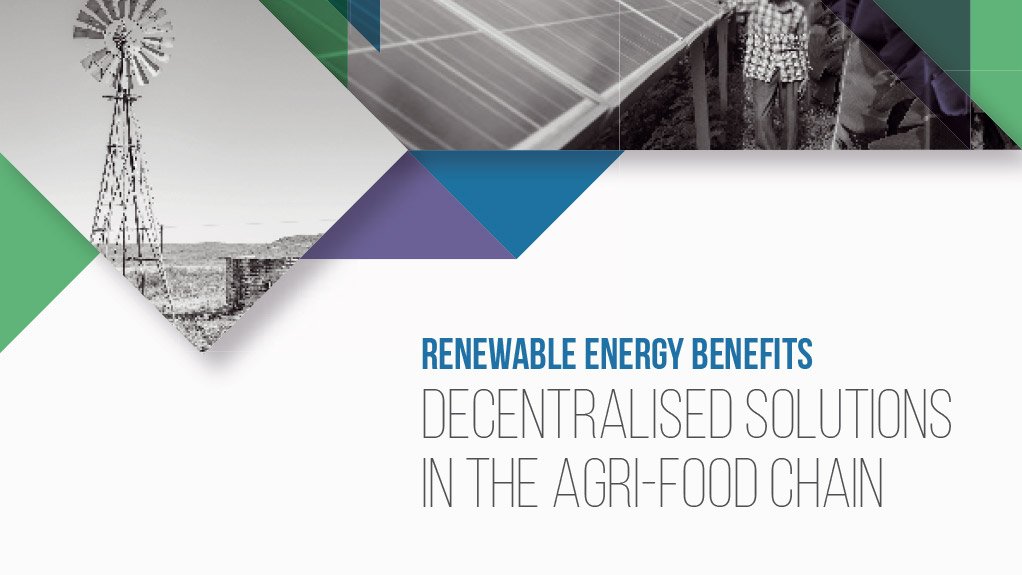- Renewable Energy Benefits: Decentralised solutions in agri-food chain9.35 MB
The number of people without access to electricity is estimated at more than a billion, while almost 2.9 billion still rely on traditional, unsustainable biomass sources such as firewood for cooking and heating. About 80% of those lacking modern energy access live in rural areas, which also host more than 70% of the world’s poor.
Agriculture and related agri-food activities are at the heart of the rural economy. However, rural communities struggling with expensive or inadequate power supplies are often limited to producing low-quality goods with little diversity. Extending affordable, secure and environmentally sustainable energy to underserved rural areas can drive community development, strengthen livelihoods and improve the quality of life.
Off-grid renewables can support productive activity at all stages of the agri-food chain, from irrigation to support food production, through post-harvest processes, including agro-processing and food preservation for storage and transport. Modern renewable technologies also allow sustainable food preparation and cooking.
This IRENA study analyses the benefits of introducing off-grid technologies for agriculture. Maximising the benefits of decentralised renewables depends on effective policies and regulations, appropriate business models, and integrated resource management.
Report by IRENA
EMAIL THIS ARTICLE SAVE THIS ARTICLE
To subscribe email subscriptions@creamermedia.co.za or click here
To advertise email advertising@creamermedia.co.za or click here











